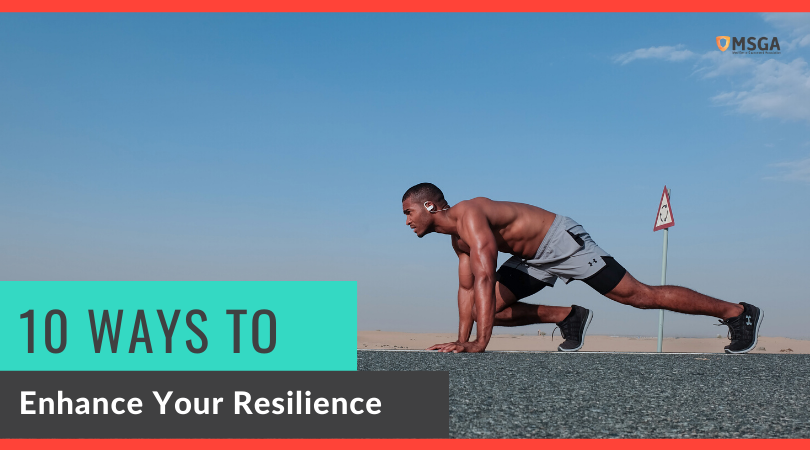Life is full of challenges that each of us must overcome. The difference between who makes it through a challenging time and those who don’t is dependent on our ability to overcome those challenges. Resilience refers to the ability of an individual to resume back from a difficult situation. This is highly dependent on our altitudes towards problems. Individuals who view themselves as victims of circumstances take more time to recover. Do you want to enhance your resilience?
Here are ten ways you can achieve stronger resilience:
- Live a life of purpose. One sure way of enhancing your resilience is through finding a life purpose. Find things that give meaning to your life. These voluntary community services, cultivating your spirituality, among others.
- Build a positive belief in your abilities. Individuals with high esteem have more resilience when faced with life challenges.
- Build a robust social network. Having a supportive network during trials assists you in finding solutions easily as well as a quicker recovery. It is essential to talk to your close family members and friends when faced with life challenges.
- Embrace change. Overcoming life challenges requires that we can be flexible to changes in our own lives. Other ways include
- Be optimistic
- Nurture yourself
- Develop problem-solving skills
- Establish goals
- Take action towards solving those problems.
- Keep working on your skills and abilities.
What are the five skills of resilience?
Here are five vital resilient skills:
- Self-awareness- It is crucial that as a person, you are aware of your body responses, feelings, and desires. Become aware of your thoughts and thinking patterns. This allows you to seek support when you feel overwhelmed.
- Attention- Observe what you put your emphasis and focus on. Focus on what you can resolve here and now, instead of putting your energy on worrying about things you cannot solve.
- Letting go physically- To let go physically means that you allow your body rest, calming your body and muscles and dealing with the form of restlessness.
- Letting go emotionally- You must be able to separate your own beliefs and perceptions about the world from the worlds itself. We are more limited by our thoughts than the actual reality of the situation at hand.
- Sustaining a positive attitude-Always, maintain a positive outlook regardless of the challenge at hand.
What are the 7C’s of resilience?
- Competence- become excellent in your abilities and skills
- Confidence- Have a solid belief in your abilities. Confidence allows you to exercise your abilities with authority.
- Connection-Build connections with your family and friends. Build a support system
- Character-Build your character that helps to follow the moral compass. Having a fundamental sense of right and wrong helps one to make the right choices.
- Contributions- Making contributions to other people’s lives makes it easier for you to ask for help when you need support.
- Coping- It is essential to have coping strategies for various life situations. Some procedures may require a physical change of position.
- Control-Maintain control of your decisions and feelings
What is the difference between resilience and coping?
Coping refers to when a person consciously attempts to minimize or put up with problems in life.
Resistance, on the other hand, refers to the ability to go through life challenges, persevere, and continue to function effectively.
What is the difference between coping with stress and resilience?
A person dealing with stress often does seek to resolve the issue at hand but looks for ways to go through the problem with minimum pressure. Resilient individuals search for solutions to the challenge and find ways of resolving the issue. They can manage high-stress levels without feeling like victims.

